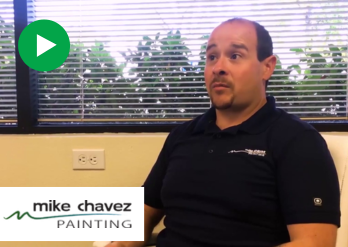We’ve written plenty about the importance of the digital customer experience over the last few years. Whether it’s attracting and retaining talented employees by living your brand or delighting customers by designing customer experience strategies that keep your brand’s promise, smart organizations know that doing these things boosts their bottom line.

Unfortunately, there are still far too many companies that don’t realize they are losing a significant amount of money by not keeping the promises they make.
It happens all the time. As in, I heard two examples of companies failing miserably at keeping their brand promise in the last week – and that’s just within my personal sphere of influence. It must be comical how much money is lost on such avoidable mistakes.
The good news for savvy organizations is that if you’re keeping your promises and delivering great customer experiences, you’re not only gaining a significant edge on your competitors, but you’re making money.
Here’s How Not to Live Your Brand
Recently, a friend of mine who is in the throes of a job search told me a horrifying story that highlights how often – and how terribly – businesses fail at representing the brand they outwardly portray to the world.
This friend is a talented, hardworking, and extremely passionate employee who any company would be lucky to have. So naturally, after an initial 45-minute phone interview, the company in question wanted to bring her in for an interview.
Despite the fact it was about a 90-minute commute to their office (remember this for later) my friend was excited. The company’s products – online assessments to help organizations streamline the hiring process and make better decisions – intrigued her, and the office culture seemed good.
After the first in-person interview, which she thought went well, they sent her a couple of their online assessments. She said she was happy to complete them because it gave her insight into how the products work, but she also noted that they took two hours to complete.
The next step in the process was a second interview, to meet a peer she would be working with, as well as the Vice President of the company. Unfortunately, the Vice President had to cancel his portion of the interview, but my friend said she got along well their her potential peer and felt good about her chances. She was told she wouldn’t have to come back to meet the VP and that there were no further assessments.
However, the next morning she had an email linking her to a third assessment, which took over two hours to complete. At this point, she started to get a bad feeling about the company, but she completed the assessment and was happy to receive a request for her references the next day. Maybe it was all going to work out, she thought. They just wanted to be sure.
She was wrong.
The next week, she was asked to come back into the office to meet with the VP. Yes, the one who canceled on her in the second interview, and yes, the one she was told she wouldn’t have to meet with. Remember that 90-minute commute, which she had already done twice? The hiring company was now asking her to do it again – directly as a result of a promise they broke to her. And all the while they took zero responsibility for anything.
In the end, she understandably couldn’t justify dedicating any further time away from her actual job and didn't feel good about the confusing and broken hiring process. When the company insisted a phone call wouldn’t be enough, she removed herself from consideration.

The company lost in two ways. First, they lost the best employee they could have hired, one who no doubt would have made them money with her skills, energy, and presence. Second, they now had to repeat the lengthy process all over again, and let me just say this: if they weren’t sure my friend was right for the job, I have no idea how they’re going to be sure about anybody.
This company is losing money because they don’t live their brand. And if they’re not living their brand through the internal hiring process, there’s a very good chance the marketing messages they send out into the world don’t mesh with the experience they deliver to their clients, either.
Not living your brand is the gateway to breaking the promises you make to your customers and shaving dollars off your bottom line.
Why Failing to Keep Your Promises Costs You Future Profit
If you’ll oblige me, I have another story. This one is about how a company cost itself future profit by breaking a promise to a customer.
In this story, a young couple is in search of a landscaping company to do some work on the interlocking bricks on their front walkway. After completing the first few steps of the new-age digital buying journey, the couple meets with a few companies, gets a few quotes, and makes a decision.
Throughout the process, one of the most important factors in the couple’s decision is timing. They would like the job done by a certain date, so they choose the company that gives them a set date for the project and also tells them how long it will take to complete.
Since we’re talking about broken promises, you know where I’m going with this. The company called the couple and nonchalantly pushed back the date of the walkway project. They did apologize but offered nothing in the way of compensation. They even had the audacity to say the delay “wasn’t our fault.”
Newsflash, business owners. If your product or service is delayed, it’s your fault. It doesn’t matter if the reason for the delay is your supplier, a sick employee, or something else. Look, stuff happens, I understand. Things go wrong and it doesn’t work out. But you are entirely responsible for the customer experience you deliver, so never ever shirk responsibility when something goes wrong. It makes broken promises that much worse, and you’ll lose that much more money.
So, how does the landscaping company lose money in this exchange? They haven’t lost the job (yet), but if it gets delayed again, they might. Assuming it doesn’t get delayed any further, they’re still going to lose money.
Had the landscaping company kept their promise and done a good job, it’s extremely likely the couple would use them again, and perhaps multiple times, for their future landscaping needs. As a result of the broken promise, even if they do a good job, the couple probably finds a different company next time. Not only that, but they also won’t recommend the company to their family, friends, and neighbors. That’s lost money in more ways than one.
Good Customer Experiences Make You Money
It’s simple – if you work hard to carefully consider the customer impact of your branding and marketing and keep your promises to your customers, your business will grow, and you’ll steadily make more money. You’ll get good reviews, more referrals, and more repeat business.
As simple as it is in theory, it’s more complicated in practice, as I outlined with these real-world examples. I’m sure everyone reading this has their own examples of broken customer experiences. Remember how these experiences made you feel and act the next time you consider breaking a promise to your customers. And if that doesn’t work, remember this: poor digital customer experiences cost you money.







